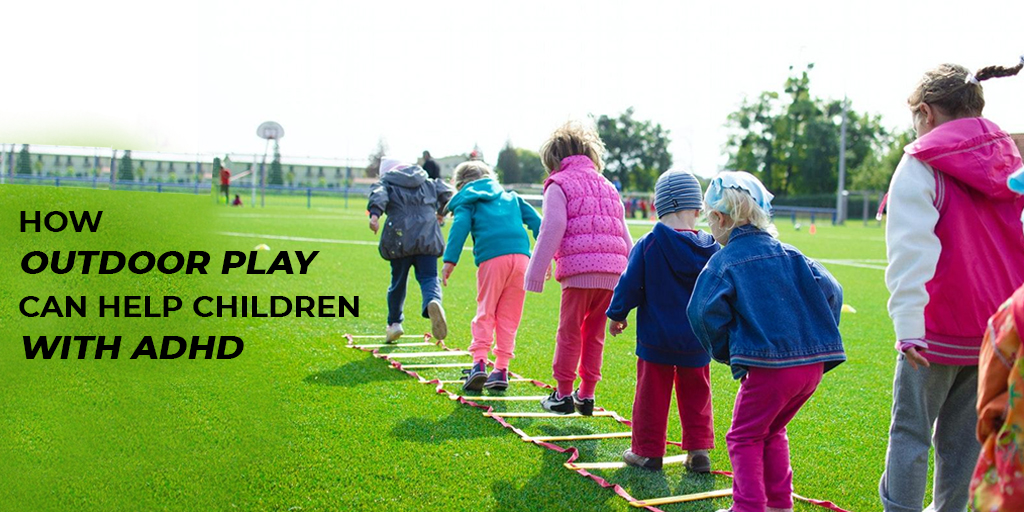
How Outdoor Play Can Help Children with ADHD
Almost all kids have their behavior veer out of control from time to time. They might drift into daydreams, get easily distracted, throw tantrums, continuously fidget, talk excessively, make constant noise, and refuse to wait for their turn. However, for some kids, these kinds of behavior are more routine than occasional. They may suffer from a medical condition known as Attention Deficit Hyperactivity Disorder (ADHD).
According to a recent study, 11.32% of primary school children in India showed symptoms of ADHD. As a parent, you have a vital role in identifying this condition and helping your child overcome it. If your child exhibits the above-mentioned behaviors for more than 6 months, it?s time you consult with a pediatrician.
Along with professional consultation, a great way to speed up your child?s treatment is by ensuring they spend more time playing outdoors than indoors. In fact, research suggests that kids who play outside have better focus, are happier, smarter, and less stressed. This blog aims to provide you with insights into how outdoor play can help children with ADHD.
1) Improves Attention Span
Children with ADHD have a hard time focusing on one thing and are continuously moving, fidgeting or wriggling. Furthermore, if they are spending more time indoors, they may show a lack of interest to participate or initiate new activities.
Regular outdoor play is known to make children more self-directed and curious. This, in turn, makes them stay on a task longer and improve their attention span. In fact,studies have found that ADHD children who spent significant time playing outdoors showed better focus than the ones who didn?t.
?2) Enhances Mood and Improves Immunity
Spending time in nature can have a significant impact on the moods and immunity of ADHD kids. According to a recent study, ADHD children showed milder symptoms and were much happier if they regularly played outside in settings such as parks, open grassy fields, and playgrounds.
This is because sunlight stimulates the pineal gland. It is a part of our brain that improves the mood and keeps the immune system strong. An added benefit is that children who spend adequate time in nature are more likely to appreciate and protect their environment as they grow into adults.
3) Contributes to Cognitive and Social/Emotional Development
Outdoor play is an excellent form of exercise that can help with the secretion of feel-good hormones such as dopamine. They are an important part of the brain?s reward system and are associated with motor system function, memory, and learning. Since ADHD kids have lower dopamine levels in the brain, outdoor play can be a great way to improve cognitive functioning.
ADHD children may also have difficulty managing their own emotions or could show a lack of awareness towards the feelings of others. This could lead to social problems and blunders. Outdoor play can enable ADHD kids to explore, share, take turns while playing, and interact with others.? As they communicate and play games, they learn empathy, cooperation, and organizational skills. This is an extremely important aspect of a child?s emotional and social development, as this is the time when they learn to use their abilities and interact with the world around them
.
4) Promotes Creativity and Imagination
ADHD children have lively personalities and can be wonderfully creative. They have tremendous potential in blossoming into an artist if provided with the right outlet to develop their creative muscle. Outdoor play is one such outlet for their creative personalities to shine.
Kids have the freedom to meaningfully interact with their surroundings and approach the world in inventive ways. They can think freely, design their activities, and exercise their imagination to come up with new ideas for play.
ADHD can be taxing on parents. However, with professional consultation, therapy, and regular outdoor play, managing ADHD can be less stressful and symptoms can be significantly reduced. So, let?s encourage outdoor play to promote good mental and physical health so that kids can become the healthiest version of themselves and lead a fulfilling life.

